| |
|

Scholars-in-residence
program
Presentations are free; kosher meals moderately priced
● Rabbi
Yakov Horowitz, founder, Project Y.E.S. (Youth Enrichment Services)
for
Agudath Israel, Jan. 4-5
● Rabbi Ari
Kahn, director, Foreign Student Programs,
Bar Ilan University, Israel, Feb.
22-23
Call us for details at (619)
287-9890, Reserve Shabbaton meals before January 2
|


Those three soldiers on my refrigerator
By Dov Burt Levy
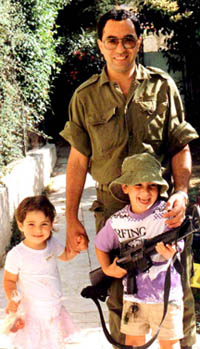 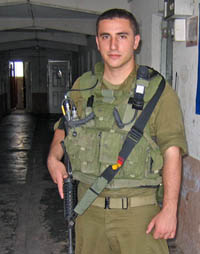 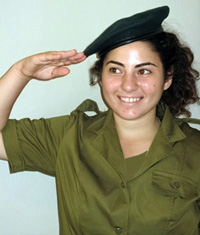
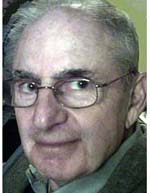 SALEM, Massachusetts—I've stared long and hard at three pictures, all taken in Israel, that are stuck to my refrigerator. My heart and my head are consumed with the people pictured, what the pictures mean and what the future will bring. SALEM, Massachusetts—I've stared long and hard at three pictures, all taken in Israel, that are stuck to my refrigerator. My heart and my head are consumed with the people pictured, what the pictures mean and what the future will bring.
The first picture, dating from 16 years ago, shows Avi Levy, my son-in-law, leaving for one-month reserve duty.(Levy is his family name; he didn't take my daughter's name.) Avi had already completed his three-year military duty. He was now doing his one-month a year, post-service obligation. His wife, my daughter Elizabeth, took the picture while 2-year-old Jenny holds her father's hand and 4-year-old Michael, called Mickey, wears his father's hat and holds his rifle.
Dov Burt Levy
I can hear it now, from a small slice of the readership of this paper, that this is an awful picture showing the militaristic nature of Israeli society and the teaching of violence from one generation to the next.
On that you could not be further wrong. What you see are two young parents, peace-loving with all their hearts, who wish to have the children not despair over the temporary departure of one of their parents. Rather, they want the children to understand the importance of serving the nation. And that, the Levy Family has done with great determination.
The second picture is of Mickey, 16 years later, now a 20-year old sergeant in the tank corps, dressed for duty, holding his own weapon. The third, of course, is of Jenny, who, at 18, recently entered the army. In this photo, she had just completed her basic training.
Ten years ago, when people asked me about the differences between Israel and America, I would say that they were minimal. In Israel, people worked, went to school, aspired to advance, shopped at Ace Hardware, Office Depot and Ikea, and ate sometimes at McDonald's, Burger King and Ben and Jerry's. I emphasized the similarities.
The Israeli military is a huge, life-changing difference from America.
Unlike the U.S. and its all-volunteer army, almost every Israeli — at least 75 percent of those who turn 18 — serves in the IDF. The army does a marvelous job of finding work assignments for soldiers on the basis of their abilities, skills and aspirations. During their senior year of school, the army has several conversations with each student; tests are given, preferences noted, and decisions made.
I have consulted American organizational experts who tell me that they have great respect for the way young recruits are treated, evaluated and transitioned into the work they will do in the army.
Of course, it wasn't always like this. In earlier times, recruits were shuffled more quickly into the infantry because of the urgent need and without the time, or appropriate tools, to make assignments.
American readers will find the following policy surprising. In Israel, many soldiers work near the large population centers of Haifa, Tel Aviv and Jerusalem, on jobs like procurement, personnel, and computer operations. The soldiers must live at home and then ride free on trains and buses to their army posts.
Thus, the family winds up providing shelter, food and the ever-popular laundry service, without compensation, for a large number of Israel's soldiers. And in one of Israel's best traditions, you'll rarely hear a parent complain.
I am proud of my family's soldiers, and that pride does not prevent my joining in the national longing for peace. When Mickey was born 20 years ago, and Jenny two years later, I predicted that peace would break out soon and service to their country would come in the form of community service. So far, I am very wrong.
Now, with a 20-year-old grandson and an 18-year-old granddaughter, and maybe some luck in the health lottery, I could be, within not too many years, a great-grandfather. As proud as I am of Israel and my family, I want peace, a robust and real peace, not another generation of pictures like those I have shared today. Is that too much to ask?
Forget about what Israel's detractors say, I know that most Israelis share that sentiment.
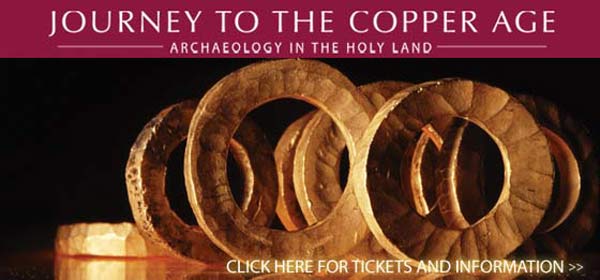

Foxman warns of growing anti-Semitism
By Eileen Wingard
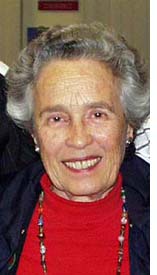 SAN DIEGO—Abraham Foxman, the legendary national director of the 95-year-old Anti-Defamation League (ADL), was the San Diego Jewish Book Fair’s speaker at a post-finale Special Event. His book, The Deadliest Lies: The Israel Lobby and the Myth of Jewish Control, was penned to refute the best seller, The Israel Lobby and U.S. Foreign Policy. SAN DIEGO—Abraham Foxman, the legendary national director of the 95-year-old Anti-Defamation League (ADL), was the San Diego Jewish Book Fair’s speaker at a post-finale Special Event. His book, The Deadliest Lies: The Israel Lobby and the Myth of Jewish Control, was penned to refute the best seller, The Israel Lobby and U.S. Foreign Policy.
Written by John Mearsheimer from the University of Chicago and Stephen Walt from Harvard’s J F Kennedy School of Government, The Israel Lobby professes to show how American Jews, especially the America-Israel Political Action Committee (AIPAC), pressured the US to go to war in Iraq
because it served Israel’s interests.
The balding, bespectacled Foxman, who escaped the Holocaust, expressed his deep concern that, with the popularity of the Mearsheimer/Walt book and former President Jimmy Carter’s Palestine: Peace Not Apartheid, old anti-Semitic canards are reemerging as respectable mainstream concepts.
Eileen Wingard
He said assertions that the Israel Lobby controls the media and US foreign policy are reminiscent of the nefarious "Protocols of Zion."
The anti-Semitism of previous years from the likes of David Duke or Pat Buchanan was easier to counter because it came from people regarded by the majority of Americans as being on the fringe, not part of the mainstream. But writings by a past U.S. president and Nobel Peace Prize winner, and by university professors from two of the country’s most prestigious institutions of higher learning, potentially legitimizes anti-Semitism as a mainstream topic.
Foxman emphasized the seriousness of Mearsheimer and Walt’s assertions by reminding his audience that Hitler’s first steps toward the Final Solution were to accuse the Jews of being disloyal to Germany. However, German Jews contributed to their homeland in many fields and served valiantly in the German military during World War I. Stalin began his tirades against the Jews also by accusing them of disloyalty to Russia despite the fact that many of Lenin’s closest followers were Jews.
Foxman pointed out that one of the largest segments of the American Jewish community, the Reform Movement, representing some 25 percent of American Jewry, was always strongly against America’s involvement in Iraq. He said that a greater percentage of the American Jewish Community was against the war than the percentage in the Democratic Party. And the Israel government itself, as stated by then Prime Minister Ariel Sharon, felt a far greater threat from Iran than from Iraq.
Foxman cautioned that American Jews should not become intimidated by accusations of disloyalty but should continue to have the courage to speak out for what we believe. He maintained that half of the Jewish population of the world, namely the Jews living in Israel, are threatened by Iran, and we American Jews need to be vigilant regarding that serious issue.
In a talk peppered by Yiddish phrases, Foxman, always the optimist, expressed the hope that anti-Semitism will some day disappear— nisht gestaygn und nisht geflaygn (Doesn’t climb and doesn’t fly) —and that peace may be achieved in the Middle East.
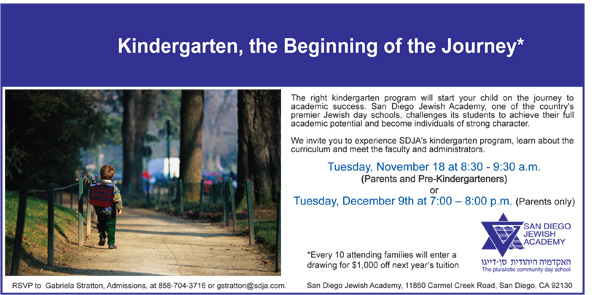

Putting Icicles on a Friendship
By Sheila Orysiek
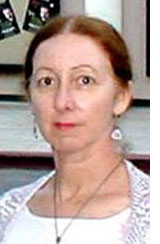 SAN DIEGO—My parents always lived in a mostly Jewish neighborhood in Philadelphia - mostly, but not completely. At Christmas time out of the eighty houses on our block of typical East Coast row homes (forty on a side), approximately fifteen to twenty would be decorated with colored lights. A peek at the windows would reveal a beautifully decorated tree all glimmering with tinsel, lights and colored decorations. SAN DIEGO—My parents always lived in a mostly Jewish neighborhood in Philadelphia - mostly, but not completely. At Christmas time out of the eighty houses on our block of typical East Coast row homes (forty on a side), approximately fifteen to twenty would be decorated with colored lights. A peek at the windows would reveal a beautifully decorated tree all glimmering with tinsel, lights and colored decorations.
To compensate, Jewish parents made a special effort to reinvigorate Hanukah by multiplying the gift factor by eight, lighting candles, decorating the house, and other activities. With a culture/religion as old as Judaism, it wasn’t difficult to find a holiday to capture the attention of Jewish children as a counter to the overpowering presence of Christmas. But, still those trees were beautiful and the colored lights fantastic. And then, of course, there was Santa in all the major stores.
Sheila Orysiek
When I was young I found myself pulled in several directions. I had a good singing voice (soprano) and my musically gifted sixth grade teacher always had me singing solos with the school glee club which she directed. She invariably chose “Silent Night” or “Oh, Holy Night” or other religiously based Christmas carol for me to sing. This, of course, presented a difficulty - should I - could I - refuse? Once when I did, she gave me an unsatisfactory grade in “music” and noted that in “behavior” I was “recalcitrant.”
My parents considered protesting, but came to the conclusion that this would exacerbate the situation since I had to spend the entire term in this woman’s class as well as all my glee club activities. Besides, at that time she was not an exception - but rather the rule. And, this was in a public school, with an overwhelmingly Jewish enrollment and a Jewish principal. The fact was we were still a minority even when we were a majority in a specific neighborhood or school.
I have to admit that on one Christmas Eve when I was six years old, as I stood at my bedroom window and looked out over the frosty rooftops, into the star filled night, I decided to hedge my bets. Yes, I had lots of Hanukah gifts, and yes I knew that Santa wasn’t real - but just maybe - if there is a chance he is….perhaps I should put up a stocking anyway. So, in the darkened room I chose one of my socks and using some tape (I knew better than to use a tack) I put up my sock on the outside of my bedroom door; couldn’t hurt to be prepared. Well, someone came, saw and filled the stocking - with a gift wrapped in Hanukah paper. So, that worked out well. I felt this had been a profitable move on my part.
However, another attempt at approaching the “other” was not. My father had become friends with a fellow employee who happened to live quite close to us in this predominantly Jewish neighborhood. This man and his wife were devout Christians. Soon the wives met and we had supper together in our homes. They had no children but did have a wonderful dog - with whom I was thoroughly in love. The friendship developed over three or four years, even to the point that when my parents needed to travel overnight for a funeral, I was able to stay with these friends.
They didn’t have any local family and so when they invited us over for supper on Christmas Eve we accepted. It was their tradition to decorate the tree before supper and we were asked to help. In the interest of mutual friendship and understanding, we were happy to participate in their family tradition. To that end my mother spent quite some time sewing on the attachments to the icicles that would enable them to be affixed to the tree. My father helped his friend sort out the lights and put them on. I scattered tinsel on the tree and the dog ran around happily.
It was a most pleasant, friendly, warm evening. When it grew late we put on our winter coats and gloves and prepared to leave. We wished them a very merry Christmas, shook hands, kissed cheeks, hugged, but then as we turned to go the wife put her hand on my mother’s shoulder. My mother stopped, turned around to look at her friend with a smile on her face as the woman said: “I really would like to know……why did you kill Christ?”
The smile on my mother’s face froze, my heart sank, and my father was stunned. I don’t remember what my mother said, except it was something to effect of “I didn’t kill Christ.” We turned away and walked off into the suddenly colder, darker night. We couldn’t help but come to the conclusion that all during these years of friendship - suppers - overnight stays - hugs - kisses - this question had obviously been festering at the heart of these friends.
How sad. We could have responded - why did you have an Inquisition, multiple Expulsions, a pogrom, a Holocaust? But, of course, we didn’t. Instead we mourned a friendship. It still grieves me all these years later.



SAN DIEGO JEWISH WORLD THE WEEK IN REVIEW
THURSDAY, DECEMBER 20
SPOTLIGHT ON SAN DIEGO JEWISH ACADEMY:Students at San Diego Jewish Academy showcased as artists and as arts critics; three teachers in arts program introduced
Harry Doshay:
Across the Universe shallow, pointless
Jazz lures Collins from metal
Alexa Katz:
Music Within triggers the emotions
Arts Collective is forerunner of school-within-school
Wood teaches photography as 'painting with light'
Daniel Penner:
Neil Young en concierto
Serj Tankian—Elect the Dead
Michelle Rizzi:
Across the Universe blows 'em away
Kipperman advocates for out-of-the-box students
plus
Donald H. Harrison: SDJA Arts Collective photo essay
WEDNESDAY, DECEMBER 19
Garry Fabian in Melbourne, Australia: Former judge faces prison in traffic case ... ... Ex South-African wins ABC writing competition ... Hardliners may exploit conference ... The next chapter in the Toben saga
Donald H. Harrison in La Jolla , California: Capturing the Jewish experience on posters
SDJA Student Quarterly:
William Bohannon: Rabbi tells Jewish views on same-sex marriage
Eitan Frysh: Fresher school lunches promised for next year
Michelle Rizzi: RIP GossipGirl
TUESDAY, DECEMBER 18
Donald H. Harrison at Miramar Marine Corps Air Station: A Marine Corps Museum provides clues to World War II life of my late, civilian father
Alexa Katz in San Diego: They pull in the same direction, but rowers Bohannon, Ritblatt find they often disagree
J. Zel Lurie in Delray Beach, Florida: Har Homa is back in the news
Fred Reiss in Winchester, California: The ever-evolving rituals of Judaism
Ira Sharkansky in Jerusalem: The conundrum of the Gaza rockets
MONDAY, DECEMBER 17
Shoshana Bryen in Washington DC: N.Y. Philharmonic performance gives North Korea an undeserved PR coup
Cynthia Citron in Los Angeles: Kid from Brooklyn revives in N. Hollywood
Gaby Maio in San Diego: Not only warriors sacrifice in the war
Sheila Orysiek in San Diego: After a while, a lover of Jewish food can't help but pass over the New Zealand lamb
David Strom in San Diego: Were there 'Schindlers' among the Arabs?
Jay Winheld in San Diego: An intimate Shabbat with 5,000 delegates
SUNDAY, DECEMBER 16
Donald H. Harrison in San Diego: SDJA Student Quarterly makes its debut
Natasha Josefowitz in La Jolla, California: Is helping each other in crises in our genes?
Rabbi Baruch Lederman in San Diego: The boy hockey player and the seniors
Dov Burt Levy in Lisbon: Portugal: Pleasant surprises for seniors
Ira Sharkansky in Jerusalem: 'Apologies' as presidential campaign tactics
Emma Tuttleman-Kriegler in San Diego: Student finds 'grandfather' at wildfire refuge
< BACK TO TOP
|
|

